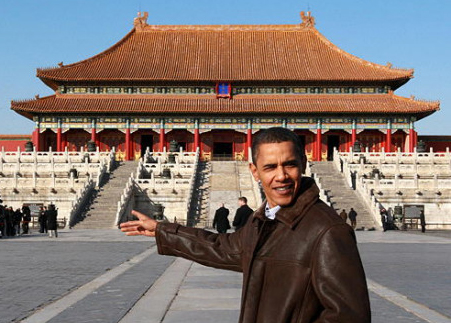 Following Secretary of State Clinton’s disappointing comments on human rights on her trip to Asia in February, and coming on the heels of the decision to delay a meeting with the Dalai Lama, I applaud President Obama for finally, and publically, taking a stand on human rights in China. Both in his town hall meeting with Shanghai students and in his meetings with the Chinese leadership in Beijing, President Obama promoted freedoms of speech and religion and emphasized that these were universal rights to which all peoples are entitled, including ethnic and religious minorities. President Obama’s public statements provide comfort and support to the brave men and women inside China who are fighting for these rights every day, many of whom are suffering in China’s Laogai—a vast archipelago of forced labor prison camps—as a result of their efforts. I encourage the Obama administration to continue to publicly affirm its commitment to human rights, and to better integrate human rights into its strategic dialogues with the Chinese leadership.
Following Secretary of State Clinton’s disappointing comments on human rights on her trip to Asia in February, and coming on the heels of the decision to delay a meeting with the Dalai Lama, I applaud President Obama for finally, and publically, taking a stand on human rights in China. Both in his town hall meeting with Shanghai students and in his meetings with the Chinese leadership in Beijing, President Obama promoted freedoms of speech and religion and emphasized that these were universal rights to which all peoples are entitled, including ethnic and religious minorities. President Obama’s public statements provide comfort and support to the brave men and women inside China who are fighting for these rights every day, many of whom are suffering in China’s Laogai—a vast archipelago of forced labor prison camps—as a result of their efforts. I encourage the Obama administration to continue to publicly affirm its commitment to human rights, and to better integrate human rights into its strategic dialogues with the Chinese leadership.
Although President Obama’s first state visit was generally a positive step, there remains much room for improvement. For example, Obama made a clear and strong case for Internet freedom during his town hall meeting, but reports of these remarks were deleted from Chinese websites by the authorities within half an hour. President Obama should have come out publicly against the censorship of his own remarks.
Another issue which the Obama administration should have addressed is the fact that dozens of activists and dissidents were detained, placed under house arrest, or saw their freedom of movement restricted in the days leading up to the President’s visit. During the Clinton presidency, political prisoners were often released as a gesture of good will before state visits. Whether this change is due to a lack of political pressure on the part of the Obama administration or to the increasing insecurity of the Chinese regime is unclear. However, the fact that a US President’s visit was cause for restricting freedoms rather than expanding them is something for which the Chinese leadership should have been publicly rebuffed.
The President and his administration should do more to address the long list of specific human rights abuses that abound in China today – from prisoners being executed for their organs to forced abortions suffered by violators of the One Child Policy to the millions of Tibetans and Uyghurs being accused of “splittism” simply for practicing their religion.
No single state visit will bring about the fundamental changes to its political system that China needs; such changes will always come from the Chinese people themselves. Still, those of us who work for greater freedoms inside China know that international pressure, particularly from the United States, has led the regime to loosen its grip in the past. That is why I believe that President Obama’s first official visit to China was generally a positive step, and hope that the administration plans to continue down this path of respectful, but unwavering support of human rights in China.